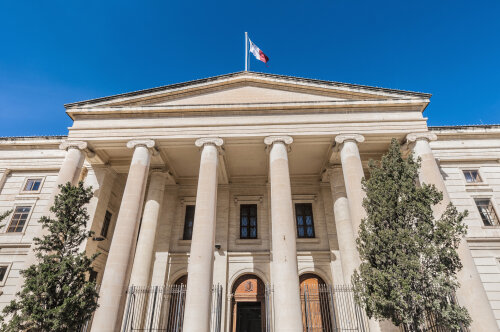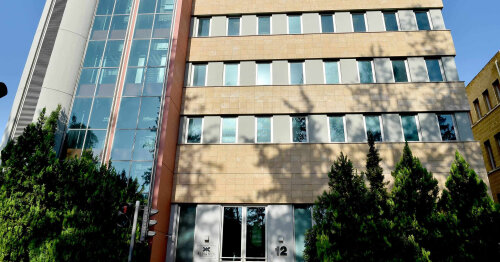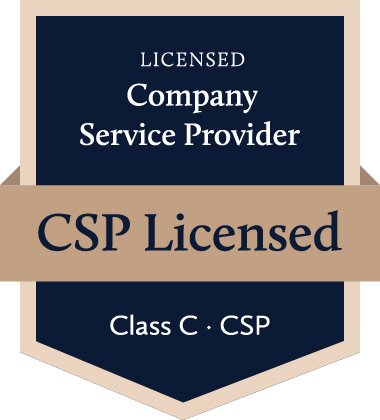Best General Litigation Lawyers in Birkirkara
Share your needs with us, get contacted by law firms.
Free. Takes 2 min.
List of the best lawyers in Birkirkara, Malta
About Litigation Law in Birkirkara, Malta
Litigation in Birkirkara, Malta, encompasses the process of resolving disputes through the legal system. This may involve going to court to assert or defend against both civil and criminal claims. Given the complexities of legal procedures and the nuances of Maltese law, understanding the fundamentals of litigation is crucial for individuals and businesses involved in legal disputes. Birkirkara, as one of Malta's largest and most bustling towns, hosts a number of skilled legal professionals specializing in various aspects of litigation.
Why You May Need a Lawyer
There are several situations where you may require the assistance of a lawyer for litigation purposes:
- Civil Disputes: Such as contract breaches, property disputes, and personal injury claims.
- Commercial Litigation: Involving business-related issues like partnership disputes, corporate governance, and creditor-debtor issues.
- Family Law Matters: Such as divorce, child custody disputes, and inheritance claims.
- Employment Disputes: Cases involving wrongful termination, workplace discrimination, and unpaid wages.
- Criminal Defense: If you are accused of committing a crime, professional legal defense is crucial.
- Alternative Dispute Resolution: Sometimes, lawyers help in arbitration and mediation procedures to avoid lengthy court processes.
Local Laws Overview
Understanding local laws relevant to litigation in Birkirkara, Malta, is essential. Here are some key aspects:
- Civil Code: Governs civil matters such as property disputes, contracts, and family law. It provides the legal framework for private rights and obligations.
- Commercial Code: Deals with matters related to business transactions, partnerships, and commercial entities.
- Criminal Code: Encompasses laws relating to criminal offenses and their prosecution. It outlines what constitutes a crime and the penalties involved.
- Judicial Proceedings: Legal processes are carried out in various courts, from the Magistrates’ Court to the Superior Courts, depending on the nature and severity of the case.
- Evidence Act: Dictates the admissibility and types of evidence permissible in court. This is crucial for both the defense and prosecution in litigation.
- Procedural Rules: There are specific rules and timelines for filing documents, presenting cases, and conduct during trials.
Frequently Asked Questions
What does 'litigation' mean in a legal context?
Litigation refers to the process of taking legal action or resolving disputes through the courts. It includes both civil and criminal court cases.
How long does litigation typically take in Birkirkara, Malta?
Litigation length varies depending on the complexity of the case, court schedules, and other factors. Simple cases may be resolved in a few months, while more complex ones can take years.
What are the costs involved in litigation?
Costs include court fees, lawyer’s fees, and possibly other expenses like expert witness fees. It is wise to discuss costs upfront with your lawyer to avoid surprises.
Can I represent myself in court?
While it is possible to represent yourself, it is generally not recommended due to the complexities of legal procedures and the potential for uninformed mistakes.
What should I look for in a litigation lawyer?
Look for experience, specialization in the relevant legal field, a good track record, and clear communication. Personal rapport and trust are also important.
How do courts in Malta handle litigation procedures?
Courts follow structured procedures that include filing claims, pre-trial motions, presenting evidence, witness testimonies, and final judgments. Appeals may be pursued based on the outcomes.
What is alternative dispute resolution (ADR)?
ADR includes methods like mediation and arbitration to resolve disputes outside of court. It is often quicker and less costly than traditional litigation.
Can court judgments be appealed?
Yes, judgments from lower courts can be appealed to higher courts, such as the Court of Appeal, depending on the case specifics and grounds for appeal.
How does one start a litigation process?
Generally, the process begins by consulting with a lawyer, who will file the necessary documents with the court and notify the other party involved in the dispute.
What are the consequences of losing a lawsuit?
Consequences may include paying damages to the prevailing party, covering court costs, and potentially altering your legal standing or rights. Your lawyer can provide specific guidance based on your case.
Additional Resources
Here are some resources that can be helpful if you are seeking legal advice on litigation matters:
- Chamber of Advocates: Provides a directory of licensed lawyers and information on legal practice in Malta.
- Law Courts of Malta: Official portal for Maltese judiciary with information on court procedures, schedules, and judgments.
- Malta Financial Services Authority (MFSA): For litigation related to financial and investment services.
- Legal Aid Malta: Offers legal assistance to those who qualify for aid based on their financial situation.
- Mediation Centre Malta: Helps in resolving disputes through mediation services.
Next Steps
If you need legal assistance in litigation, follow these steps:
- Identify Your Legal Issue: Clearly define the problem or dispute you are facing.
- Research: Gather information and documentation related to your case.
- Consult a Lawyer: Consider reaching out to a lawyer who specializes in your type of legal issue.
- Understand Costs: Discuss the potential costs and payment arrangements with your lawyer.
- Formalize the Agreement: Once you decide on a lawyer, sign a formal agreement outlining the terms of service.
- Follow Legal Advice: Adhere to your lawyer’s guidance throughout the litigation process for the best outcome.
By following these steps, you will be better prepared to navigate the complexities of litigation in Birkirkara, Malta, and work towards a satisfactory resolution of your legal issues.
Lawzana helps you find the best lawyers and law firms in Birkirkara through a curated and pre-screened list of qualified legal professionals. Our platform offers rankings and detailed profiles of attorneys and law firms, allowing you to compare based on practice areas, including General Litigation, experience, and client feedback.
Each profile includes a description of the firm's areas of practice, client reviews, team members and partners, year of establishment, spoken languages, office locations, contact information, social media presence, and any published articles or resources. Most firms on our platform speak English and are experienced in both local and international legal matters.
Get a quote from top-rated law firms in Birkirkara, Malta — quickly, securely, and without unnecessary hassle.
Disclaimer:
The information provided on this page is for general informational purposes only and does not constitute legal advice. While we strive to ensure the accuracy and relevance of the content, legal information may change over time, and interpretations of the law can vary. You should always consult with a qualified legal professional for advice specific to your situation.
We disclaim all liability for actions taken or not taken based on the content of this page. If you believe any information is incorrect or outdated, please contact us, and we will review and update it where appropriate.

















